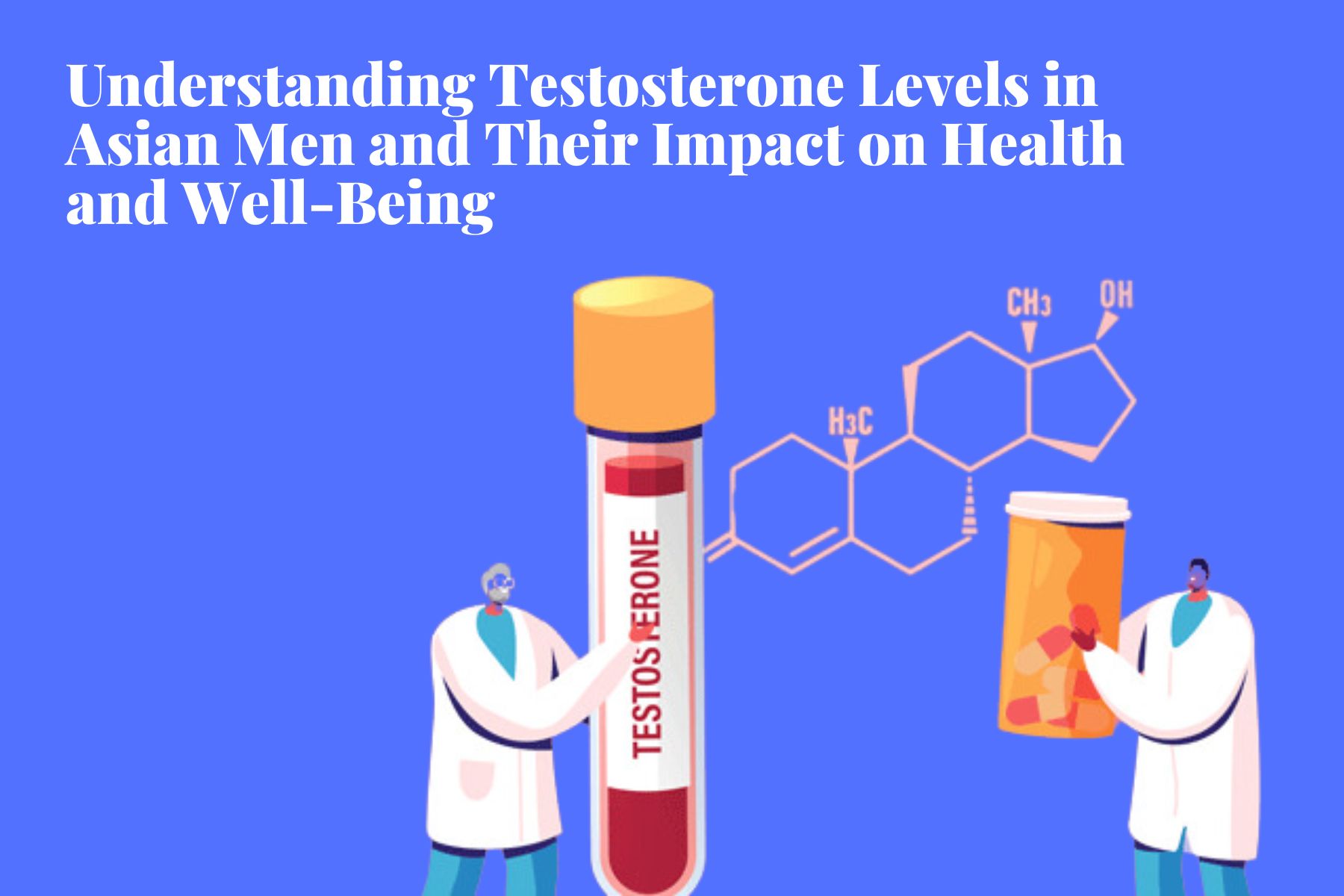CATEGORY: BOOST TESTOSTERONE
Understanding Testosterone Levels in Asian Men and Their Impact on Health and Well-Being

Testosterone, a key hormone predominantly associated with male health, plays a central role in various bodily functions such as muscle mass maintenance, bone density, mood regulation, and energy levels. While many aspects of testosterone function are universal, research suggests there are variations in testosterone levels across different ethnic groups, including Asian men. Understanding these variations, along with their potential impact on health and well-being, is crucial in addressing specific health needs and improving quality of life.
1. Testosterone Levels Among Asian Men: What the Research Shows
Scientific studies indicate that testosterone levels tend to vary by ethnicity, with some research suggesting that men of Asian descent may have slightly lower average testosterone levels compared to men from other ethnic backgrounds, such as Caucasian or African-American men. This does not imply any deficiency but rather reflects natural genetic and physiological diversity. These variations can be attributed to factors like genetic differences, lifestyle, diet, environmental influences, and potentially even cultural stressors.
Lower average testosterone levels can influence a variety of health outcomes, from physical fitness to mood, but it’s important to note that average differences do not necessarily predict individual testosterone levels. Each man’s testosterone levels are unique and influenced by both biology and lifestyle choices, regardless of ethnicity.
2. Health Impacts of Testosterone Levels in Asian Men
Testosterone influences numerous aspects of men’s health, affecting both physical and psychological well-being.
Here’s a closer look at some key areas where testosterone levels may play a role:
a) Physical Fitness and Body Composition:
Testosterone is closely linked to muscle growth and fat distribution. Men with lower testosterone levels may find it more challenging to build and maintain muscle mass and may be more prone to higher body fat percentages. This can affect metabolic health, increasing the risk of conditions like obesity, type 2 diabetes, and cardiovascular disease. For Asian men, who may have different fat distribution patterns compared to other ethnic groups, testosterone levels could influence how and where body fat accumulates.
b) Bone Density and Joint Health:
Bone density, often associated with testosterone levels, tends to decline with age, and lower testosterone levels can accelerate this process. This can lead to conditions like osteoporosis or brittle bone syndrome, which may increase the risk of fractures. Given that Asian men already have a higher susceptibility to low bone density compared to some other ethnic groups, monitoring testosterone levels could be beneficial in assessing bone health.
c) Sexual Health and Fertility:
Testosterone plays an essential role in libido and fertility. Lower levels can sometimes lead to reduced sexual desire, erectile dysfunction, or other reproductive issues. In traditional Asian societies, where topics around sexual health may not be as openly discussed, this can lead to underdiagnosis and inadequate treatment of related health issues. Addressing these topics with sensitivity and a scientific approach can help remove stigmas and improve quality of life.
d) Psychological Health:
Testosterone affects mood and cognitive function, with low levels often linked to symptoms of depression, anxiety, and fatigue. Asian men may face unique psychological stressors, such as the pressure to succeed academically and professionally, family expectations, and experiences of racial or cultural discrimination. Lower testosterone levels, when combined with these pressures, may contribute to higher rates of mental health issues, which are sometimes stigmatized in many Asian cultures.
3. Factors Contributing to Testosterone Levels
Several lifestyle and environmental factors can influence testosterone levels, including:
a) Diet and Nutrition:
Diets rich in essential nutrients, healthy fats, and lean protein can support testosterone production. Many traditional Asian diets are high in vegetables, grains, and fish, which are generally healthful but may be lower in sources of saturated fats and certain animal proteins that can help boost testosterone.
b) Exercise and Physical Activity:
Regular physical activity, particularly resistance and strength training, has been shown to naturally increase testosterone levels. Men who lead sedentary lifestyles, which can be common in urban settings, may experience a decrease in testosterone over time. This lifestyle factor is especially relevant in Asian cities, where busy work schedules often limit opportunities for exercise.
c) Stress and Sleep Patterns:
Chronic stress, combined with inadequate sleep, can reduce testosterone levels. Asian men who experience significant work-related stress or who struggle with sleep due to demanding lifestyles may face these hormone-related impacts. Maintaining a healthy sleep schedule and managing stress through mindfulness or therapy can help support balanced testosterone levels.
d) Environmental Exposure and Pollution:
Some studies indicate that exposure to environmental pollutants, endocrine disruptors, and certain chemicals can negatively affect testosterone levels. Given the high pollution levels in some Asian countries, this factor may be more relevant, and measures to reduce exposure to these chemicals may contribute to healthier testosterone levels.
4. Optimizing Testosterone Levels for Better Health
While genetic and environmental factors play a role, there are proactive steps that Asian men can take to optimize their testosterone levels:
* Focus on Nutrition: Prioritize a balanced diet with adequate protein, healthy fats, and essential vitamins and minerals, particularly zinc and vitamin D, which play a role in hormone production.
* Exercise Regularly: Incorporate strength training and high-intensity interval training (HIIT) into exercise routines to boost testosterone naturally.
* Get Enough Sleep: Aim for 7–9 hours of quality sleep each night, as testosterone production peaks during deep sleep stages.
* Manage Stress Levels: Practice stress-reduction techniques such as mindfulness, meditation, or hobbies that promote relaxation to counteract cortisol's testosterone-lowering effects.
* Limit Alcohol and Avoid Smoking: Both excessive alcohol and smoking can decrease testosterone production and overall hormonal health.
5. Seeking Medical Advice and Testing
Asian men experiencing symptoms such as fatigue, mood swings, muscle weakness, or low libido may benefit from a simple blood test to check their testosterone levels. A healthcare provider can offer guidance on treatment options, including lifestyle changes or, in some cases, testosterone replacement therapy (TRT). For those opting for TRT, understanding the benefits, risks, and personal suitability is essential.
Conclusion
Testosterone levels play a vital role in the health and wellness of Asian men, influencing everything from physical fitness to mental health. While variations in levels are normal, understanding the impact of testosterone on body and mind can empower men to take proactive steps in maintaining their health. By embracing a balanced lifestyle, managing stress, and seeking medical advice when necessary, Asian men can optimize their testosterone levels and enhance their overall quality of life



